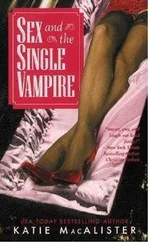Richard Burton - Vikram and the Vampire
Здесь есть возможность читать онлайн «Richard Burton - Vikram and the Vampire» — ознакомительный отрывок электронной книги совершенно бесплатно, а после прочтения отрывка купить полную версию. В некоторых случаях можно слушать аудио, скачать через торрент в формате fb2 и присутствует краткое содержание. Жанр: foreign_antique, foreign_prose, на английском языке. Описание произведения, (предисловие) а так же отзывы посетителей доступны на портале библиотеки ЛибКат.
- Название:Vikram and the Vampire
- Автор:
- Жанр:
- Год:неизвестен
- ISBN:нет данных
- Рейтинг книги:3 / 5. Голосов: 1
-
Избранное:Добавить в избранное
- Отзывы:
-
Ваша оценка:
- 60
- 1
- 2
- 3
- 4
- 5
Vikram and the Vampire: краткое содержание, описание и аннотация
Предлагаем к чтению аннотацию, описание, краткое содержание или предисловие (зависит от того, что написал сам автор книги «Vikram and the Vampire»). Если вы не нашли необходимую информацию о книге — напишите в комментариях, мы постараемся отыскать её.
Vikram and the Vampire — читать онлайн ознакомительный отрывок
Ниже представлен текст книги, разбитый по страницам. Система сохранения места последней прочитанной страницы, позволяет с удобством читать онлайн бесплатно книгу «Vikram and the Vampire», без необходимости каждый раз заново искать на чём Вы остановились. Поставьте закладку, и сможете в любой момент перейти на страницу, на которой закончили чтение.
Интервал:
Закладка:
‘To die, O man, is a passing pain; to be poor is an interminable anguish. Surely our present lot is the penalty of some great crime committed by us in a past state of being. 26 26 A Moslem would say, ‘This is our fate.’ A Hindu refers at once to metempsychosis, as naturally as a modern Swedenborgian to spiritism.
Callest thou this state life? Better we die at once, and so escape the woes of the world!’
Hearing these words, the Brahman sat undecided, with open jaws and eyes fixed upon the apple. Presently he found tongue: ‘I have accepted the fruit, and have brought it here; but having heard thy speech, my intellect hath wasted away; now I will do whatever thou pointest out.’
The wife resumed her discourse, which had been interrupted by a more than usually copious flow of tears. ‘Moreover, O husband, we are old, and what are the enjoyments of the stricken in years? Truly quoth the poet —
Die loved in youth, not hated in age.
If that fruit could have restored thy dimmed eyes, and deaf ears, and blunted taste, and warmth of love, I had not spoken to thee thus.’
After which the Brahman threw away the apple, to the great joy of his wife, who felt a natural indignation at the prospect of seeing her goodman become immortal, whilst she still remained subject to the laws of death; but she concealed this motive in the depths of her thought, enlarging, as women are apt to do, upon everything but the truth. And she spoke with such success, that the priest was about to toss in his rage the heavenly fruit into the fire, reproaching the gods as if by sending it they had done him an injury. Then the wife snatched it out of his hand, and telling him that it was too precious to be wasted, bade him arise and gird his loins and wend him to the Regent’s palace, and offer him the fruit – as King Vikram was absent – with a right reverend brahmanical benediction. She concluded with impressing upon her unworldly husband the necessity of requiring a large sum of money as a return for his inestimable gift. ‘By this means,’ she said, ‘thou mayst promote thy present and future welfare.’ 27 27 In Europe, money buys this world, and delivers you from the pains of purgatory; amongst the Hindus, it furthermore opens the gate of heaven.
Then the Brahman went forth, and standing in the presence of the Raja, told him all things touching the fruit, concluding with, ‘O, mighty prince! vouchsafe to accept this tribute, and bestow wealth upon me. I shall be happy in your living long!’
Bhartari Raja led the supplicant into an inner strong-room, where stood heaps of the finest gold-dust, and bade him carry away all that he could; this the priest did, not forgetting to fill even his eloquent and toothless mouth with the precious metal. Having dismissed the devotee groaning under the burden, the Regent entered the apartments of his wives, and, having summoned the beautiful Queen Dangalah Rani, gave her the fruit, and said, ‘Eat this, light of my eyes! This fruit – joy of my heart! – will make thee everlastingly young and beautiful.’
The pretty queen, placing both hands upon her husband’s bosom, kissed his eyes and lips, and sweetly smiling on his face – for great is the guile of women – whispered, ‘Eat it thyself, dear one, or at least share it with me; for what is life and what is youth without the presence of those we love?’ But the Raja, whose heart was melted by these unusual words, put her away tenderly, and, having explained that the fruit would serve for only one person, departed.
Whereupon the pretty queen, sweetly smiling as before, slipped the precious present into her pocket. When the Regent was transacting business in the hall of audience she sent for the ambassador who regulated war and peace, and presented him with the apple in a manner at least as tender as that with which it had been offered to her.
Then the ambassador, after slipping the fruit into his pocket also, retired from the presence of the pretty queen, and meeting Lakha, one of the maids of honour, explained to her its wonderful power, and gave it to her as a token of his love. But the maid of honour, being an ambitious girl, determined that the fruit was a fit present to set before the Regent in the absence of the King. Bhartari Raja accepted it, bestowed on her great wealth, and dismissed her with many thanks.
He then took up the apple and looked at it with eyes brimful of tears, for he knew the whole extent of his misfortune. His heart ached, he felt a loathing for the world, and he said with sighs and groans: 28 28 This part of the introduction will remind the reader of the two royal brothers and their false wives in the introduction to the Arabian Nights . The fate of Bhartari Raja, however, is historical.
‘Of what value are these delusions of wealth and affection, whose sweetness endures for a moment and becomes eternal bitterness? Love is like the drunkard’s cup: delicious is the first drink, palling are the draughts that succeed it, and most distasteful are the dregs. What is life but a restless vision of imaginary pleasures and of real pains, from which the only waking is the terrible day of death? The affection of this world is of no use, since, in consequence of it, we fall at last into hell. For which reason it is best to practise the austerities of religion, that the Deity may bestow upon us hereafter that happiness which he refuses to us here!’
Thus did Bhartari Raja determine to abandon the world. But before setting out for the forest, he could not refrain from seeing the queen once more, so hot was the flame which Kama had kindled in his heart. He therefore went to the apartments of his women, and having caused Dangalah Rani to be summoned, he asked her what had become of the fruit which he had given to her. She answered that, according to his command, she had eaten it. Upon which the Regent showed her the apple, and she beholding it stood aghast, unable to make any reply. The Raja gave careful orders for her beheading; he then went out, and having had the fruit washed, ate it. He quitted the throne to be a jogi, or religious mendicant, and without communicating with any one departed into the jungle. There he became such a devotee that death had no power over him, and he is wandering still. But some say that he was duly absorbed into the essence of the Deity.
We are next told how the valiant Vikram returned to his own country.
Thus Vikram’s throne remained empty. When the news reached King Indra, Regent of the Lower Firmament and Protector of Earthly Monarchs, he sent Prithwi Pala, a fierce giant, 29 29 In the original, ‘Div’ – a supernatural being, god, or demon. This part of the plot is variously told. According to some, Raja Vikram was surprised, when entering the city, to see a grand procession at the house of a potter, and a boy being carried off on an elephant, to the violent grief of his parents. The king inquired the reason of their sorrow, and was told that the wicked Div that guarded the city was in the habit of eating a citizen per diem. Whereupon the valorous Raja caused the boy to dismount; took his place; entered the palace; and, when presented as food for the demon, displayed his pugilistic powers in a way to excite the monster’s admiration.
to defend the city of Ujjayani till such time as its lawful master might reappear, and the guardian used to keep watch and ward night and day over his trust.
In less than a year the valorous Raja Vikram became thoroughly tired of wandering about the woods half dressed: now suffering from famine, then exposed to the attacks of wild beasts, and at all times very ill at ease. He reflected also that he was not doing his duty to his wives and children; that the heir-apparent would probably make the worst use of the parental absence; and finally, that his subjects, deprived of his fatherly care, had been left in the hands of a man who, for aught he could say, was not worthy of the high trust. He had also spied out all the weak points of friend and foe. Whilst these and other equally weighty considerations were hanging about the Raja’s mind, he heard a rumour of the state of things spread abroad; that Bhartari, the regent, having abdicated his throne, had gone away into the forest. Then quoth Vikram to his son, ‘We have ended our wayfarings, now let us turn our steps homewards!’
Читать дальшеИнтервал:
Закладка:
Похожие книги на «Vikram and the Vampire»
Представляем Вашему вниманию похожие книги на «Vikram and the Vampire» списком для выбора. Мы отобрали схожую по названию и смыслу литературу в надежде предоставить читателям больше вариантов отыскать новые, интересные, ещё непрочитанные произведения.
Обсуждение, отзывы о книге «Vikram and the Vampire» и просто собственные мнения читателей. Оставьте ваши комментарии, напишите, что Вы думаете о произведении, его смысле или главных героях. Укажите что конкретно понравилось, а что нет, и почему Вы так считаете.












